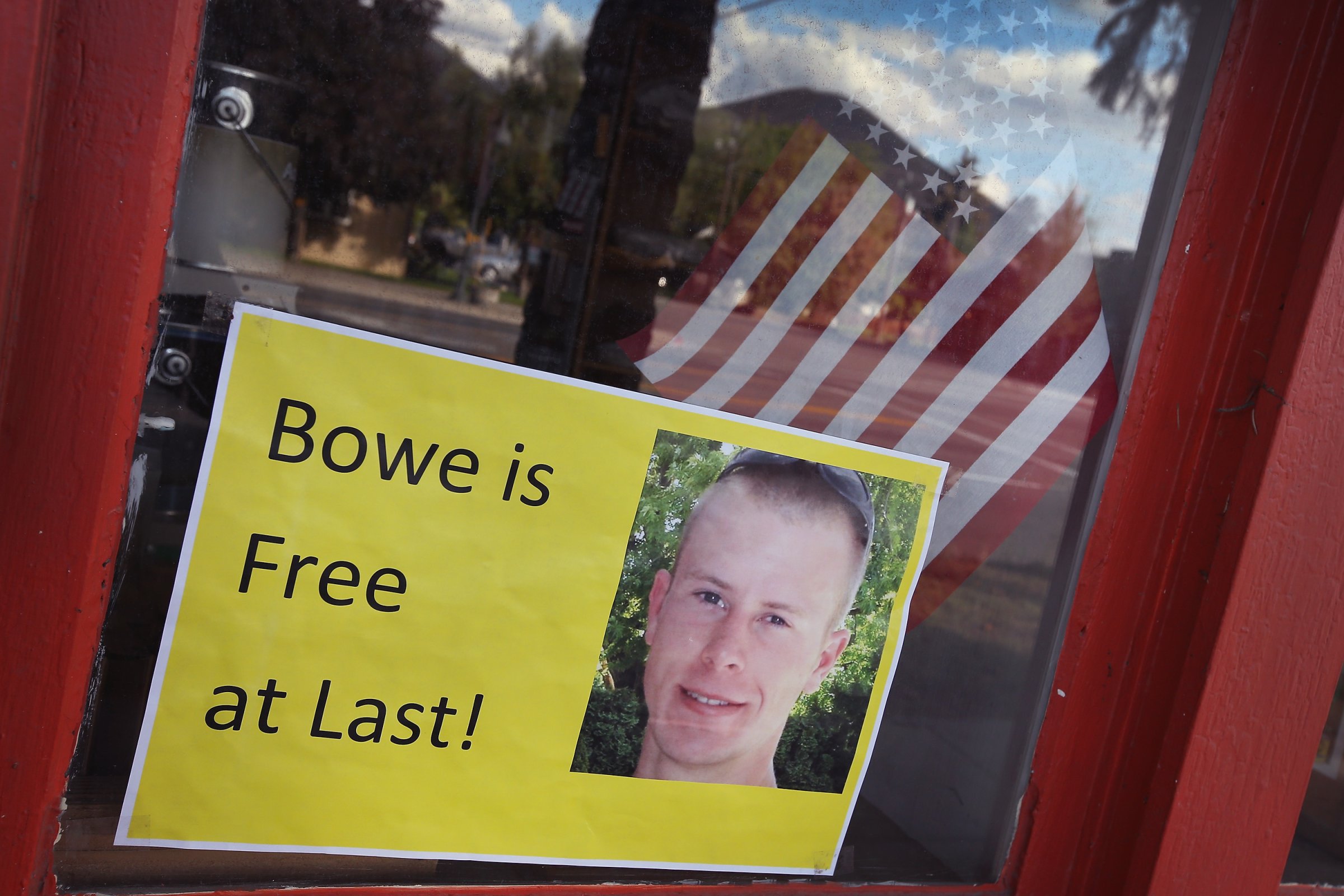
As Army veterans who served with Bowe Bergdahl continued to denounce what they described as desertion — an act that reportedly led to the death of some of the GIs who tried to find him after his disappearance in Afghanistan — senior military hands took a more measured approach to his ultimate fate at the hands of military justice.
“The circumstances surrounding his departure from the base are well-known by his chain of command, but what is not known is his motivation, which can easily be determined,” says John Keane, who retired as a four-star general, and the Army’s second-ranking officer, in 2003.
The soldiers who served with Bergdahl say he simply deserted his observation post after becoming disenchanted with the war.
“I think he abandoned his post while the other four soldiers were asleep,” Greg Leatherman, Bergdahl’s former squad leader, tells TIME. “He was a loner, he didn’t like to share much with anyone. Read the Koran quite a bit, which I respected. I saw it as him trying to be a better soldier, learning more about the people we were going to work with. Turns out he was preparing.”
Soldiers say at least six U.S. troops died in clashes with the Taliban while hunting for Bergdahl after he went missing and was seized by the Taliban in Paktika province on June 30, 2009. “We know of … guys who died looking for him,” Leatherman said on his Facebook page. “But think of all the Scuba Steves and Cool Guys that got hurt or killed looking for him as well. People we may never know about.”
Keane wants Bergdahl held accountable if what his fellow soldiers say is true. “If he indeed left his post without authority, and there are no extenuating circumstances, then he must be held accountable for his actions,” he says. That “means he should be charged, tried and separated [from the Army] without prison time.” In fact, Keane says, the case could be dealt with “in a lower form of court martial before a single officer and absent a courtroom if he is willing to plead guilty.”
Eugene Fidell, a lecturer on military law at the Yale Law School and co-founder of the National Institute of Military Justice, doubts the case will get that far, even if warranted. “It’s utterly discretionary as a matter of clemency, a matter of judgment, and indeed even as a matter of politics. The authorities can decide this is not a case that they want to do anything about,” he says.
“Let’s assume that the facts demonstrate that he left with an intent to remain away permanently — that is desertion,” Fidell says. “Will the cognizant general officer decide, ‘Look, this guy spent five years [as a prisoner] and we’re just not going to put him through the wringer again?’ No prosecution is mandated by the Uniform Code of Military Justice,” he adds. “We don’t tend to throw the book at these people who are under quite unusual circumstances.”
Charles Jenkins, for example, deserted his Army unit in South Korea in 1965 and lived in North Korea until 2004. He ultimately plead guilty to charges of desertion and aiding the enemy. He received a dishonorable discharge, was stripped to the Army’s lowest rank, forfeited all pay and benefits, and was sentenced to 30 days in prison (he got out six days early for good behavior). He now lives in Japan.
But he was 64 when sentenced (Bergdahl is 28), and no one died trying to find Jenkins after he headed north through the Demilitarized Zone one freezing January night nearly 50 years ago. Bergdahl, Fidell says, could also face the charge of desertion. But given that it allegedly occurred in a non-declared war, the maximum penalty, ironically, would be another five years’ imprisonment, and not the possible death sentence the crime carries during a declared war.
“This is just so grotesque,” argues retired Army officer and author Ralph Peters. “Americans can’t name a single Medal of Honor recipient, but everybody knows the name of an alleged deserter.” He says part of the anger over Bergdahl’s release rests at the doorstep of 1600 Pennsylvania Avenue. “Check out the fury — fury — of his fellow soldiers and veterans,” Peters says. “The big mistake was for the President and his gang to imply that Bergdahl is a hero.”
Peters says Bergdahl needs to face some kind of military justice to determine what happened, and to accept punishment if he is found guilty. “What military people fear is a whitewash that will let him walk with an honorable discharge and full benefits,” he says. “That would be an insult to every person who’s ever served honorably in uniform — giving [an alleged] deserter full lifetime benefits.”
Peters believes a public proceeding is warranted. “He needs a fair trial with public testimony from his comrades and chain of command,” he says. “And from the comrades of those who died while trying to find and free him.”
More Must-Reads from TIME
- How Donald Trump Won
- The Best Inventions of 2024
- Why Sleep Is the Key to Living Longer
- Robert Zemeckis Just Wants to Move You
- How to Break 8 Toxic Communication Habits
- Nicola Coughlan Bet on Herself—And Won
- Why Vinegar Is So Good for You
- Meet TIME's Newest Class of Next Generation Leaders
Contact us at letters@time.com